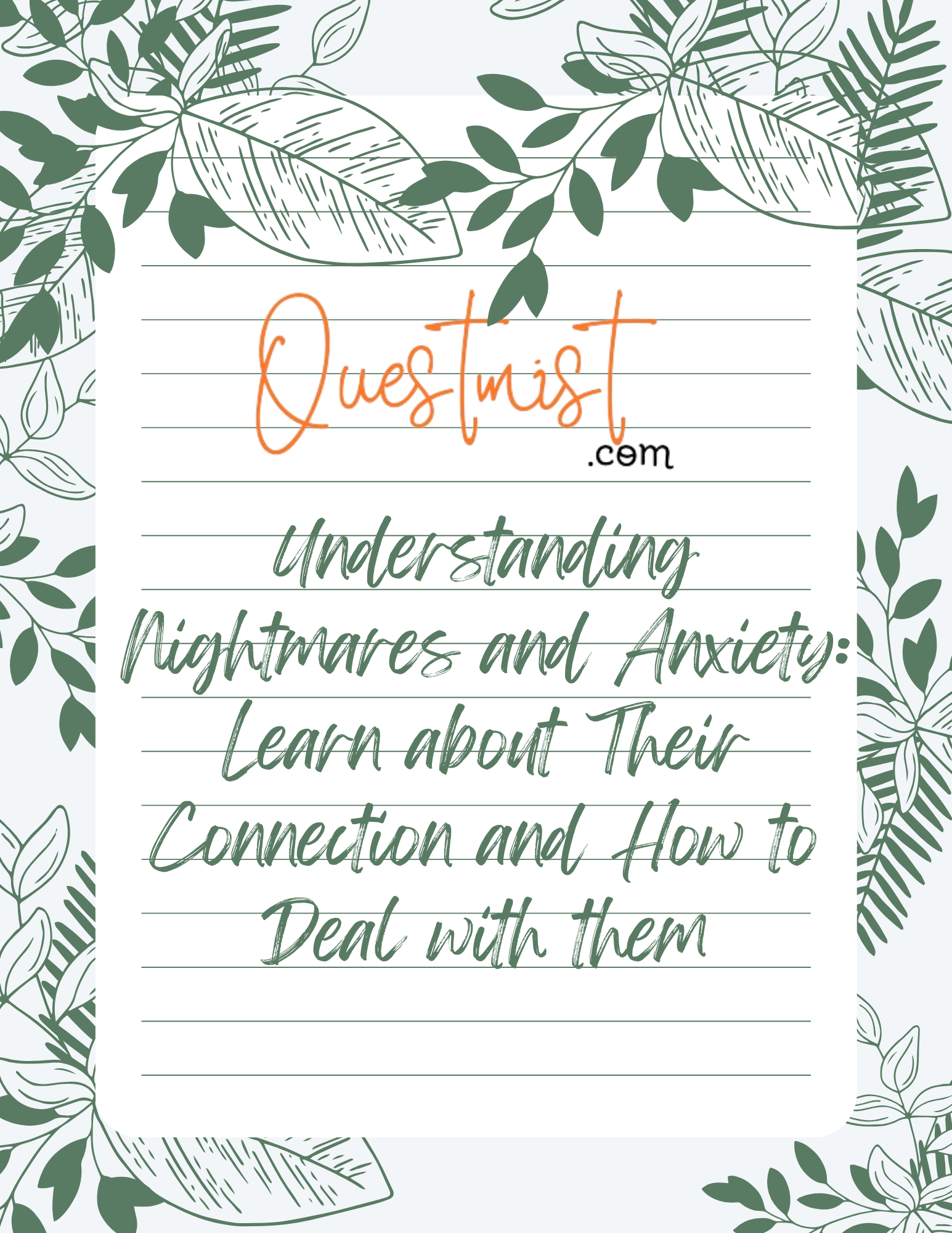
Understanding the Relationship Between Nightmares and Anxiety
Have you ever been terrified in the middle of the night, waking up drenched in sweat with a pounding heart after a nightmare? A lot of people have gone through this at one time or another and it is very disturbing to say the least. But do you realize that nightmares are related to anxiety ? Today, In this article we are going to explore the relationship between nightmares and anxiety as well as how you can handle them.
The Link Between Nightmares and Anxiety Disorders
Anxiety disorders including generalized anxiety disorder, post-traumatic stress disorder (PTSD) and social anxiety disorder are some of the common symptoms associated with nightmares. These kinds of dreams tend to be intense and can leave you feeling frightened, powerless, or overwhelmed. They may also present as your biggest fears or anxious thoughts externalized as monsters, catastrophes or instead terrifying events.
Exploring the Connection
But why do nightmares and anxiety go along most times? According to one hypothesis about sleep cycle being disrupted by anxiety fails on those nights when an individual should get restorative sleep. This might lead to more frequent occurrences of bad dreams because your brain is attempting to process and comprehend your fear and worry sounds.
The second and very closely related explanation for the nightmares-anxiety connection is that both are rooted in the part of the brain known as the amygdala. This almond-shaped region processes emotions, amongst which are fear and stress. When you are worried, your amygdala starts acting excessively, hence triggering fight-or-flight response making you feel uneasy. Because of this intense emotional state, your dreams can turn into nightmares.
However difficult it may be to deal with anxiety-induced nightmares, there are steps that can be taken to handle them. One way is to engage in relaxation exercises such as deep breathing exercises or progressive muscle relaxation before retiring to bed. These activities help calm your mind and body allowing you to sleep easily thereby minimizing the chances of having bad dreams.
Additionally, getting at its root causes may also assist one in coping with anxieties. This could involve consulting a therapist or even taking drugs or making changes on lifestyle aimed at reducing stress levels. By dealing with anxiety issues, one’s mental well-being overall improves so thus lessening frequency of nightmares possibly.
Additionally, one can prevent the nightmares by establishing a relaxing bedtime routine. For example, this might involve going through a book, soaking oneself in hot water or listening to calm music before switching off the lights. Other things that may help deal with sleep difficulties and minimize nightmare probabilities include maintaining a cool, dark and noiseless sleep environment.
It is not wise dwelling on a nightmare when you get one. Instead of this try to think about happy thoughts and actions which enables one to relax. Also talking to someone about a dream may be helpful for your peace of mind; it will provide support, help you understand your feelings and assist in moving from there.
conclusion
To sum up, nightmares are often associated with anxiety meaning that both are closely interrelated conditions. By recognizing this bond and devising ways of controlling hypertension as well as managing insomnia at night will result into more restful sleeping patterns for those who snore. Bare in mind that other people also undergo similar incidents related to nightmares plus stress; assistance is accessible during such moments.

You must be logged in to post a comment. Please Login or Register .